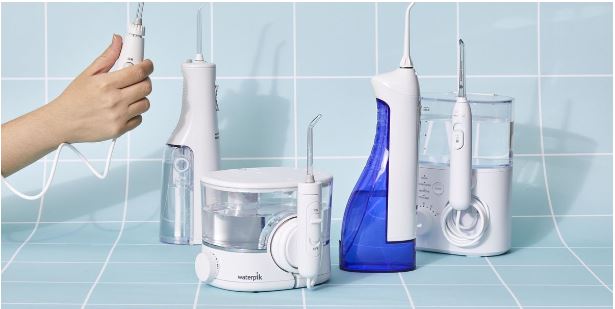Oral hygiene plays a vital role in our overall health, and one of the essential practices is flossing. Traditional string flossing has long been the go-to method, but more recently, water flossing has gained popularity due to its numerous health benefits. Water flossing involves using a specialized device that shoots a pressurized stream of water between teeth and along the gumline, effectively removing plaque, debris, and bacteria. In this blog post, we will delve into the advantages of water flossing and why it should be a part of everyone’s oral care routine.
1. Improved Gum Health
Maintaining healthy gums is crucial for oral health. Water flossing is gentle on the gums and can significantly reduce the risk of gum disease. A study published in the Journal of Periodontology demonstrated that water flossing reduced gum bleeding by 93% compared to traditional string flossing. The pulsating water stream stimulates blood flow and helps to massage and strengthen gum tissue, promoting healthier gums.
2. Enhanced Plaque Removal
Water flossing is highly effective at removing plaque, which is a sticky film of bacteria that forms on teeth. A study published in the Journal of Clinical Dentistry found that water flossing is 29% more effective at plaque removal than traditional flossing. The pulsating action of the water flosser dislodges plaque from hard-to-reach areas, including the gumline and interdental spaces, ensuring a thorough clean.
3. Easy to Use
One of the primary advantages of water flossing is its ease of use. The water flosser typically comes with different pressure settings, allowing individuals to adjust the intensity according to their comfort level. The device’s ergonomic design and specialized tips make it easy to reach all areas of the mouth, including the back teeth. Unlike traditional flossing, water flossing does not require manual dexterity, making it suitable for people with braces, implants, or dental work.
4. Great for Sensitive Teeth
Many people struggle with sensitive teeth and gums, which can often make traditional flossing uncomfortable or even painful. Water flossing offers a gentle alternative that is well-tolerated by sensitive mouths. By adjusting the water pressure to a lower setting, individuals with sensitive teeth can still achieve effective plaque removal without discomfort.
5. Reduction in Bad Breath
Bad breath, otherwise known as halitosis, can be a result of lingering food particles and bacteria trapped between teeth and along the gumline. Water flossing helps eliminate these culprits, leaving your mouth feeling fresh and revitalized. By removing the sources of bad breath, water flossing contributes to improved oral hygiene and increased self-confidence.
6. Additional Health Benefits
The advantages of water flossing extend beyond oral health. Research suggests that maintaining good oral hygiene can have positive effects on overall health. Studies have linked poor oral health to an increased risk of systemic conditions, such as cardiovascular disease, diabetes, and respiratory infections. By incorporating water flossing into your routine, you can potentially reduce the risk of these health issues and enhance your overall well being.
In conclusion, water flossing is a game-changer in oral hygiene, offering a multitude of benefits for your teeth, gums, and overall health. Its effectiveness in plaque removal, promotion of gum health, ease of use, and suitability for sensitive teeth make it a valuable addition to any oral care routine.
Remember – if you’re new to water flossing or have specific dental concerns, don’t hesitate to consult with your dentist for recommendations tailored to your unique needs. With their professional guidance, you can optimize your oral health and enjoy the long-lasting benefits of water flossing.


Recent Comments